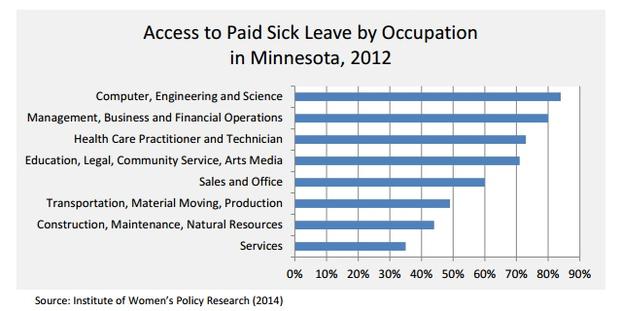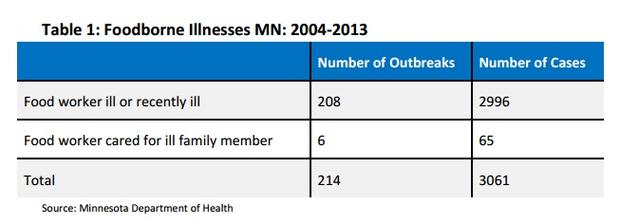MDH: Lack of Paid Sick Leave Leads To Spread Of Disease
MINNEAPOLIS (WCCO) - The lack of paid sick leave in Minnesota workplaces has contributed to contagious disease outbreaks and added to employers' health care expenses, according to a report issued earlier this month from the state's Department of Health.
Paid sick and family leave has received a flurry of attention recently after it was mentioned in President Obama's State of the Union Address. Minnesota state legislators proposed two pieces of sick and family leave legislation this session. Sen. Al Franken introduced a bill in February to give employees nationwide one hour of sick leave for every 30 they work. And Microsoft made headlines last week by announcing it will require all U.S. suppliers to offer 15 days a year of paid leave.
The Minnesota health department's 39-page white paper was commissioned by the state legislature.
The report found that the Minnesota employees least likely to have paid sick leave are in the occupations most likely to have contact with the public: long-term care, health care and food services.
"These are the people who are taking care of your kids or handling your food," said Rep. John Lesch, DFL-St. Paul, who authored the sick leave bill this session. "These are the people on the other side of the sneeze guard at Subway, and you want them to be healthy, because they are the tip of the spear in the fight for public health."
Sick restaurant and food service workers who couldn't afford to take time off unpaid were linked by the report to 208 foodborne outbreaks and 2,996 documented illnesses in Minnesota from 2004 to 2013. About 79 percent of food service workers did not have paid sick leave in 2013.
In addition to occupation, the report found access to paid sick leave in Minnesota is unequal by income, race, employer size and education.
Criticism of paid leave legislation has come largely from business owners, who argue that new requirements will hurt their bottom line and subject them to overbearing regulations.
"Mandating benefits hinders employers' flexibility to deal with individual employee circumstances and may ignore the realities of their particular industry," Ben Gerber, the Minnesota Chamber of Commerce's manager of labor/management policy, said in a statement. "Proposed mandates are especially onerous and troublesome for small employers."
The MDH report found that employers actually benefited financially from offering paid leave, seeing improvements in recruitment, retention and morale. Employers without paid leave policies suffered indirect costs, the report found, "including lost labor time, costs related to the spread of illness and disease, and challenges in employee recruitment and retention."
Lesch said this "counterintuitive" nature of paid leave is what motivated him to seek legislative change.
"The initial reaction is that somehow this is a burden on business," he said, "when, in fact, the white paper establishes that's actually not the case."
By Zac Farber





